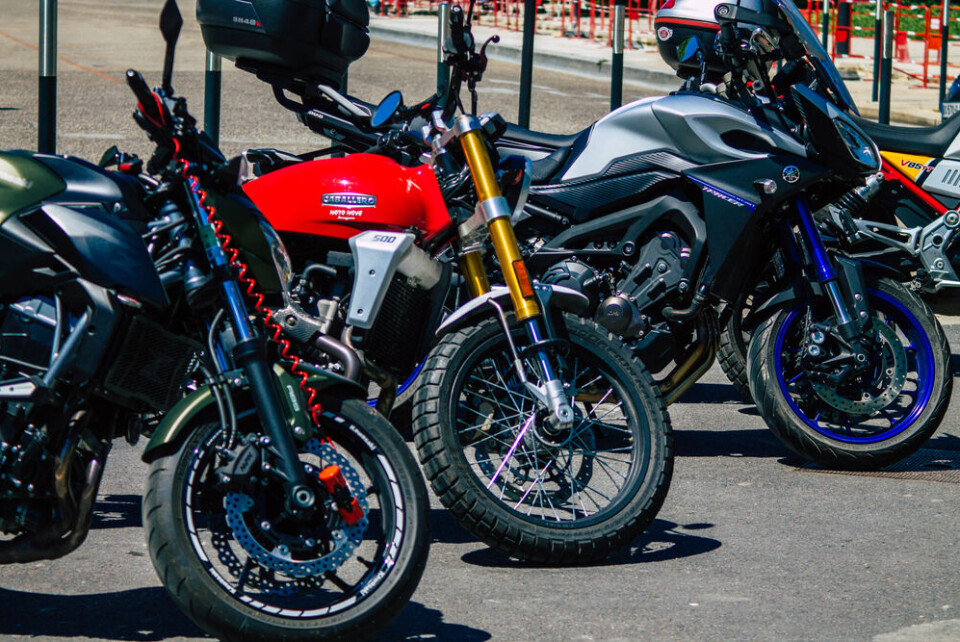-
French motorway made free to motorbikes during Le Mans 24H bike race
There will also be rest stops available for motorbike riders travelling to and from the event
-
Which car models have highest contrôle technique failure rates in France?
CTs are compulsory for vehicles over four years old and must take place every two years
-
Why sales of motorbikes and scooters are falling fast in France
The second-hand market has fallen the most
Start date set for motorbike roadworthiness tests in France
The introduction of compulsory testing will be staggered and will also apply to mopeds and licence-free cars

Roadworthiness tests on motorbikes will become obligatory from April 15, but will be introduced gradually to avoid test centres being swamped.
The new contrôle technique (CT) requirement covers all category L vehicles, including mopeds (scooters in French), three-wheeled vehicles, quad bikes and licence-free cars (voitures sans permis).
Competition and vintage motorbikes are exempt.
Read more: How will new contrôle technique tests work for motorbikes in France?
When must you get your motorbike tested?
Unlike cars, which must be tested every two years, motorbikes and other L vehicles will have a three-year testing regime after an initial test between four-and-a-half and five years after first registration.
Implementation has been staggered according to the age of vehicles: the first are those registered before January 1, 2017, whose anniversary of registration date is before April 15. They must have a CT before August 14.
Other vehicles first registered before 2017 have until December 31.
For vehicles registered between January 1, 2017, and December 31, 2019, the first CT must be done in 2025.
Those registered between January 1, 2020, and December 2021 must be tested in 2026.
If the vehicle was registered after January 2022, the first CT is not needed until four-and-a-half to five years later.
Read more: Biker cannot ride his motorbike after French driving licence swap
Legislation pushed through after EU threats
The path to these compulsory tests has been long, after the Socialist Hollande government signed up to an EU directive on the issue in 2014 without consulting any bikers.
France has proportionally more motorcyclists than any other EU country.
A series of protests, often thousands-strong, followed.
It was only after the EU threatened to fine France for non-compliance that the Macron government, after many talks and concessions, pushed through the legislation.
How will the tests work?
Tests will be carried out either at existing CT centres that have invested in the necessary equipment or at new centres.
There is no defined price – centres are free to set their own – but government guidelines previously suggested €50 to €70.
Brakes, steering, visibility, lights, tyres, suspension, and noise and emissions pollution will all be checked.
Results will be in three categories: pass, with no major faults; pass, with major faults requiring a contre-visite in the next two months; or failure, with critical faults.
In this case, the vehicle will be banned from the road from midnight of the test date.
Failure to get a CT risks a €135 fine and the carte grise could be revoked.
Related articles
Paris reviews banning motorbikes and scooters at night to limit noise
2024 MAP: Where are low emission zones in France and what are rules?
Explained: The rules of France’s contrôle technique car checks
























